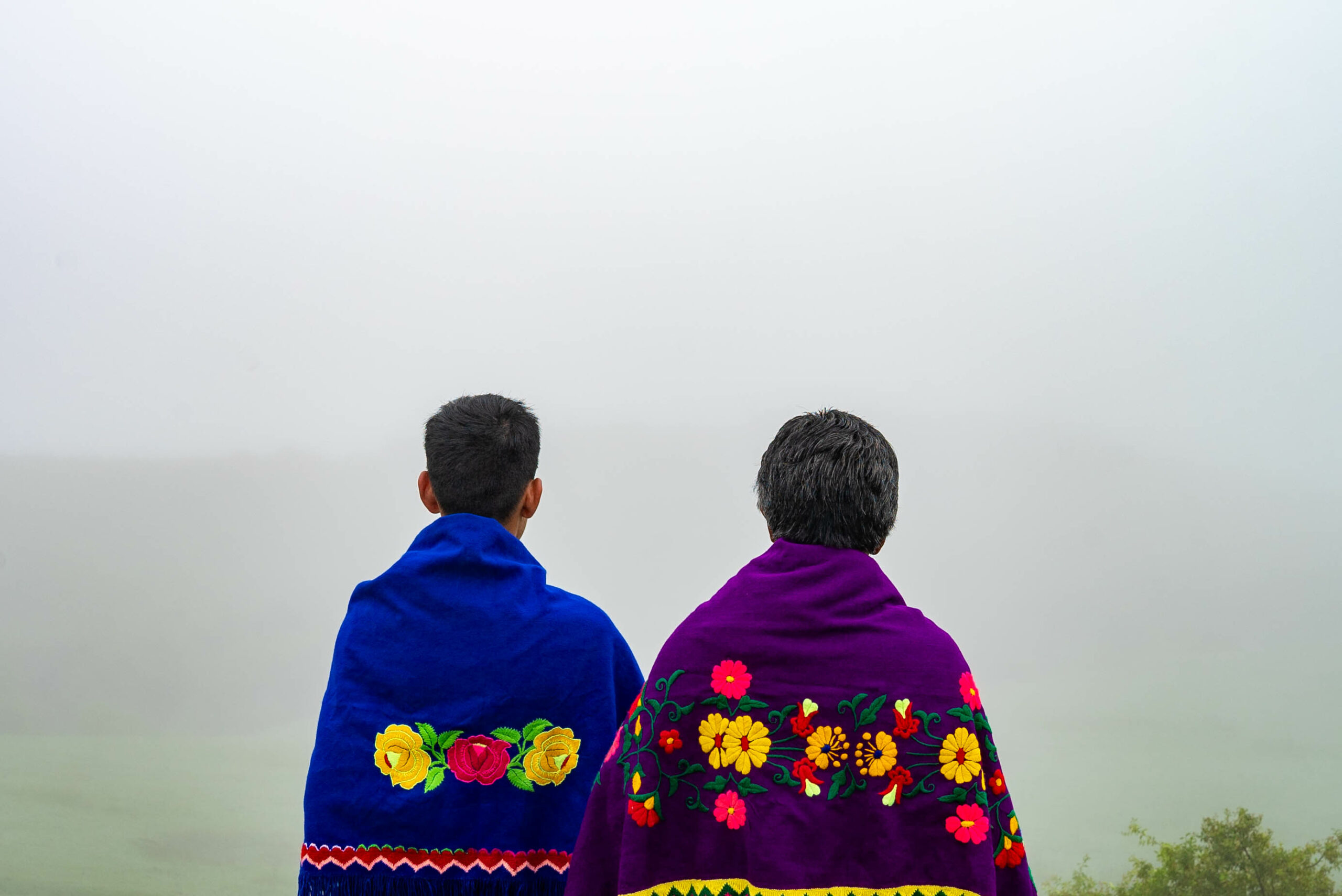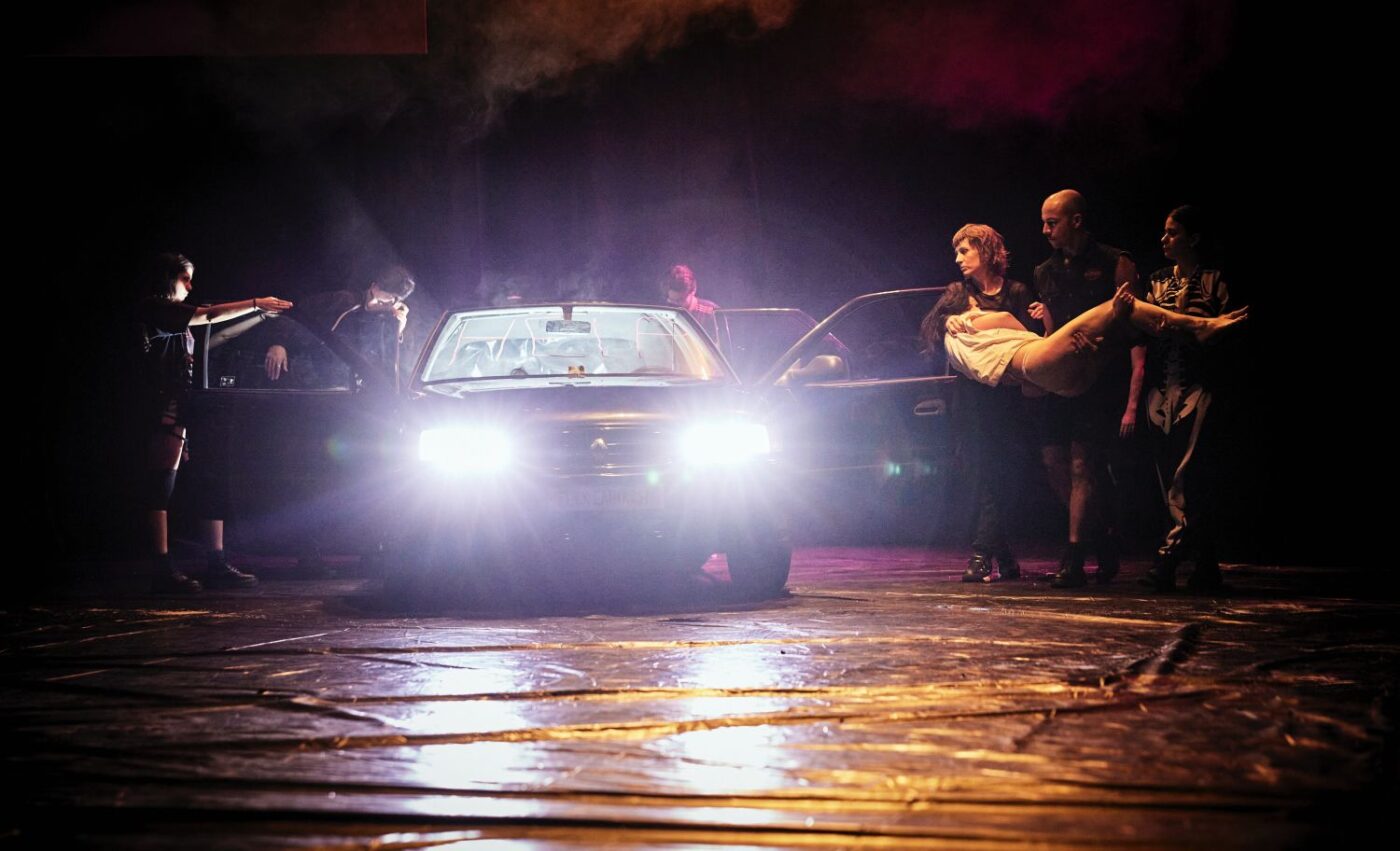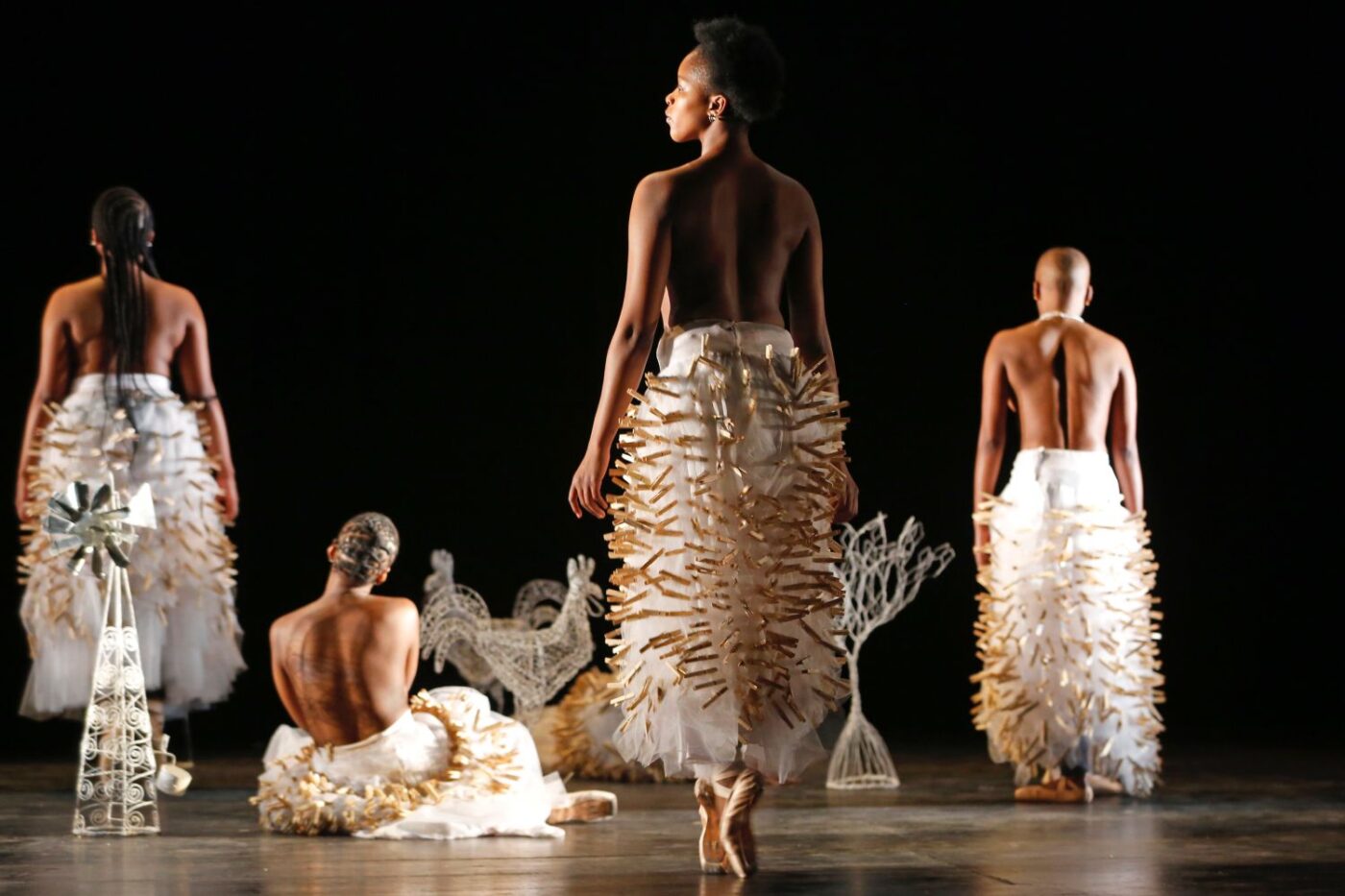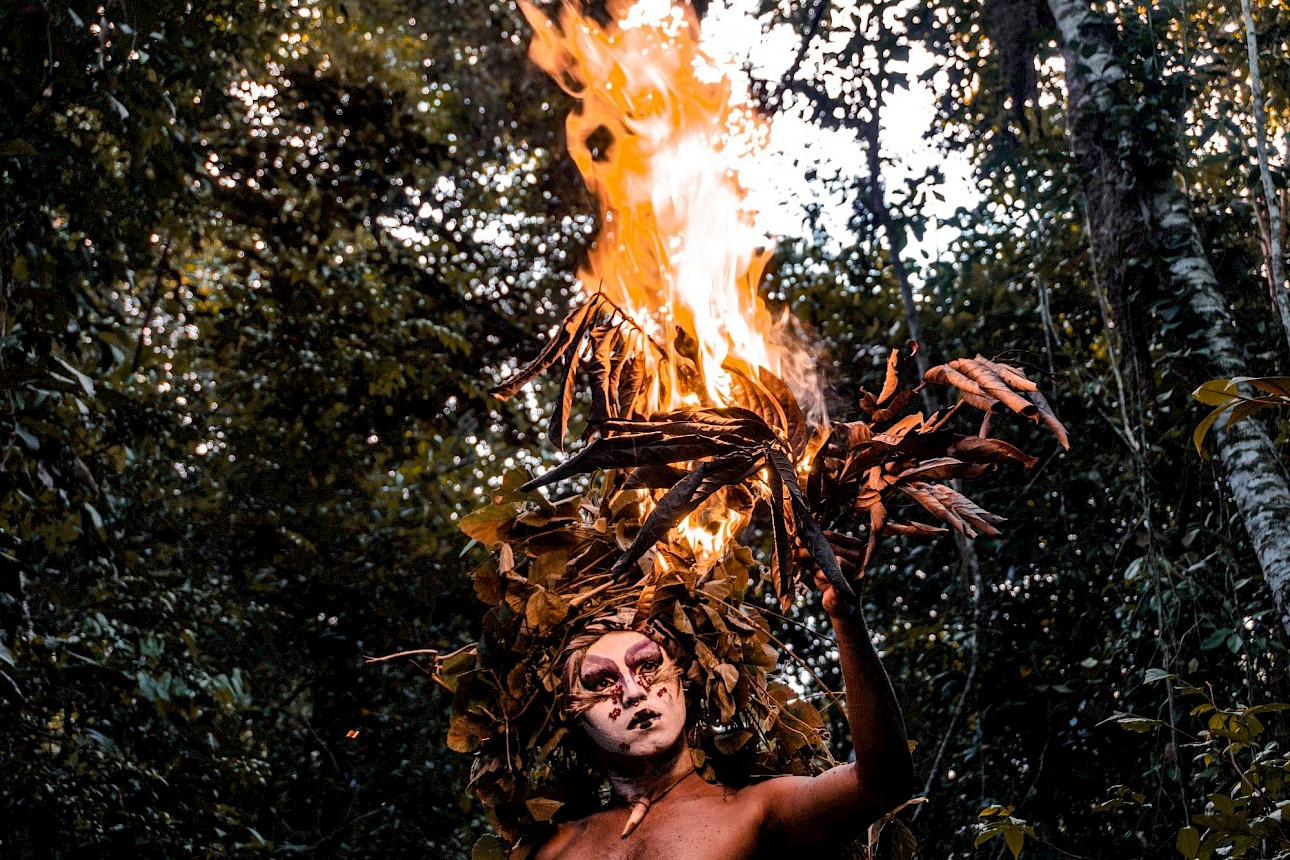Festival
Alkantara doesn’t give up hope
The Performing arts festival takes place between November 15th and December 1st

In November, several venues in Lisbon (and one in Almada) are the stage for more than a dozen excellent shows, two programmes with guest curators, talks, films and “music by Gal Costa”. Alkantara Festival starts on November 15th, at Culturgest, with the sensational show by Brazilian artist Carolina Bianchi, The Bride and Goodnight Cinderella.
“Dances between life and death, death and life”, announce the current artistic directors of Alkantara Festival, Carla Nobre Sousa and David Cabecinha, in the opening text of this year’s programme. Lisbon’s historic performing arts festival, founded more than 30 years ago by Mónica Lapa as Danças na Cidade, and since 2005 under its current name, covers a dozen stages, from the institutional CCB, Culturgest, Gulbenkian and São Luiz to the alternative Casa Independente and Espaço Alkantara, passing by Biblioteca Palácio Galveias, Casa da América Latina, Teatro do Bairro Alto and an old office in Marvila, now named Winter Garden.
They arrive from South America, Europe, Africa or the Middle East, and there are more than a dozen artistic manifestations where “lives are heavy with violence, grief, and injustice”, but also the possibility of more “optimistic versions” of future. As programmers, Carla and David believe that, “when the proposals dialogue with each other within the festival, despite so many stories of tiredness and disappointment, there is a possibility for hope”.
Signed by artists originating from the Colombian Amazon, such as Waira Nina, from the inhospitable and wonderful Argentine northwest, such as Tiziano Cruz, or from Africa, such as Mamela Nyamza and her 10 performers of different ethnic origins, the festival comprises more than a dozen excellent shows, two programmes with guest curators, talks, films and “other gatherings”, including a concert dedicated to the music of Gal Costa by Àkila a.k.a Puta da Silva, on November 30, at Casa Independente, in Intendente.
Some highlights
The festival begins at Culturgest, with The Bride and Goodnight Cinderella, by Brazilian artist based in Amsterdam, Carolina Bianchi. When, in 2023, the show debuted, at the Avignon Festival, as the “first chapter” of the Cadela Força Trilogy (which will continue in 2025 and conclude the following year), the debate on gender-based violence and sexual abuse of women gained strong prominence in parallel events to the festival. In question, a disturbing, disconcerting and innovative artistic object that, starting from the story of Pippa Bacca – raped and murdered during the Bride on Tour, a performance in which the Italian artist and feminist traveled, dressed as a bride, between Milan and Jerusalem – begins by going through the history of art, in the format of a lecture where representations and true stories of women who were brutally raped and murdered are discussed.
If, in the first part of the show, discomfort due to the rawness of the narratives sets in, in the second, Bianchi directly challenges the audience to descend into the hell of sexual violence and feminicide, taking a mix of “good night Cinderella”, also known as “rape drug”, and leaving her body vulnerable at the mercy of eight performers.

If Carolina Bianchi and her company Cara de Cavalo promise to mark this edition of the Alkantara Festival, it is with the martyred Middle East in the background that two small treasures arrive to be discovered: The body is here, off screen, by Alia Hamdan (Espaço Alkantara, 19 and 20), and Dear Laila, by Basel Zaraa (Biblioteca Palácio Galveias, from 22 to 30).
When Alia Hamdan presents this performance in Lisbon, we don’t know, but we fear that bombs will continue to fall in her hometown of Beirut and in others in her country. The body is here, off screen is not about the Israeli attacks on the Lebanese capital, but it will be impossible not to think about them when, in front of us, a woman is standing, close to her double, while a voice narrates the strange experience of a time in a coma. The deep state of unconsciousness she fell into began on August 4, 2020, when a very strong explosion in the port area “affected the city as a whole, in a single instant”. According to the author, “this performance is an attempt to portray a frozen temporality, generated by that event”, reflecting on the absence of those responsible and political consequences resulting from this event that swept wide areas of the city, killed more than two hundred people and injured thousands.
As for Basel Zaraa, he was born and raised in a Palestinian refugee camp in Syria. His grandparents were expelled from Palestine in 1948, and since then, Zaraa’s family has never received citizenship from any other country. In 2010, this musician and street artist managed to reach the United Kingdom where he settled and became the father of a girl, Laila. One day, his daughter asked where he grew up and why they couldn’t go there. Basel then decided to build a model of his childhood home in Yarmouk, near Damascus, in what became the largest Palestinian refugee camp, now practically destroyed. Dear Laila challenges us to think about how “war and exile define public and domestic spaces”, putting each of us in the shoes of Basel’s daughter, sitting in front of the model of the house, with the headphones of an old walkman, discovering “objects, photos, sounds and smells from the history” of resistance and forced migration of little Laila’s family.

Another highlight of this edition is Nigamon/Tunai (16 and 17, at Teatro do Bairro Alto), a show born from artistic collaboration between indigenous communities in Canada and Colombia. The words that give the title to this “poetic manifesto” both mean “song” in Anishinaabemowin and Inga, respectively. The first, an indigenous language from Canada, where director, writer and actress Émilie Monnet comes from. The second, the language of a people of the same name who inhabit the Colombian Amazon, the birthplace of Waira Ninga, an interdisciplinary artist who co-signed, with her Canadian friend, a “performance piece” where the territories of both – the north and the south – intertwine in a “valuable exchange fueled by living knowledge, the cosmogonies and the struggles that unite them”. Among these struggles, the fact that, in the territory of the Inga people, oil and mining companies are destroying entire ecosystems to plunder resources. Namely, copper, a fundamental mineral for the Anishinaabe culture in Canada, where these same predatory companies thrive.
Inevitable, even more so when the issue of immigration continues to mark the media agenda, Keli Freitas’ most recent creation Go Back To Where You Came From (21 to 23, at São Luiz Teatro Municipal). In this biographical piece, the Brazilian artist shares the process of self-discovery triggered when she set out in search of the trail of her great-grandmother Virgínia, Portuguese, born in Torres Vedras. Having been in Portugal for seven years, Keli assumes her status as an immigrant to question what it means to be a citizen of a country, how to exercise citizenship rights, how to define whether a land belongs to this or that country. Flanked on stage by Ana Gigi, a friend she met in Portugal and who also has a history of migration in her genealogy, the show offers a reflection on this condition, challenging established concepts of belonging and identity.
Two guest programmes
Fire Letters, by Terra Batida platform, and Transmisson, by BRABA.plataforma, are two curatorships invited by Alkantara Festival for this edition.
At Casa da América Latina, on November 29 and 30, Terra Batida, directed by Ritó Natálio, proposes “a dialogue with contemporary indigenous thought”, through a session featuring Fire Letters, a reading-performance by Ellen Pirá Wassu, indigenous poet from the Wassu Cocal people, and Ritó Natálio, writer and performer, and the performance of indigenous Amazonian trans artist Uýra Sodoma, The interest in the Amazon is not the damn trees.

BRABA.plataforma, directed by Gaya de Medeiros, presents its third showcase, entitled Transmission, with three creations that “look at memory through very different perspectives, yet all of them draw narratives in the present that shift our perception of the identities and histories of the people we see on stage”: Brief Notes on Digestion, by dai ida, Raw Eggs, by Artemis Chrysostomidou, and the aforementioned concert by Àkila a.k.a Puta Da Silva, Da Maior Importância.
Until December 1st, there is still to see Wayqeycuna, by Tiziano Cruz, “a raw look at the art market and class privilege” (CCB, 16 and 17); Hatched Ensemble, by Mamela Nyamza, a deconstruction of classical dance, which combines ballet, African and contemporary dances (Teatro São Luiz, 16 and 17); the dinner-performance with utopias on the menu by Sonya Lindfors and Maryan Abdulkarim, We Should All Be Dreaming (CAM Gulbenkian, 23 and 24); the acclaimed The Secret Life of Old People, by Mohamed El Khatib, where a cast over 80 takes on what it’s like to experience sexual desire in old age (Culturgest, 23 and 24); 52 Blue, performance by Francisco Thiago Cavalcanti inspired by the behavior of whales (TBA, 23 to 26); and Mike, a durational performance about a day of work in an office by renowned performer Dana Michel (November 29, 30 and December 1, in Marvila). Mention also goes to the screening of the films Side Trip, by the Japanese collective Chim↑Pom from Smappa!Group, filmed in Marvila a year ago (CAM Gulbenkian, 27 and 30), and Blackface, the documentary, by Heverton Harieno about the show of the same name by Marco Mendonça (Espaço Alkantara, December 1st). Out of doors, at Casa da Dança, in Almada, dancer and choreographer Vânia Doutel Vaz opens doors to the process of creating Violetas, a show to be presented in the 2025 edition of the festival (November 30).
In short, living up to the meaning of its name, Alkantara has been “building bridges between artists and audiences, between geographies, cultures and artistic expressions” for more than three decades, and this year will be no different. Especially because, looking at the state of the world, they have never been so indispensable and urgent.